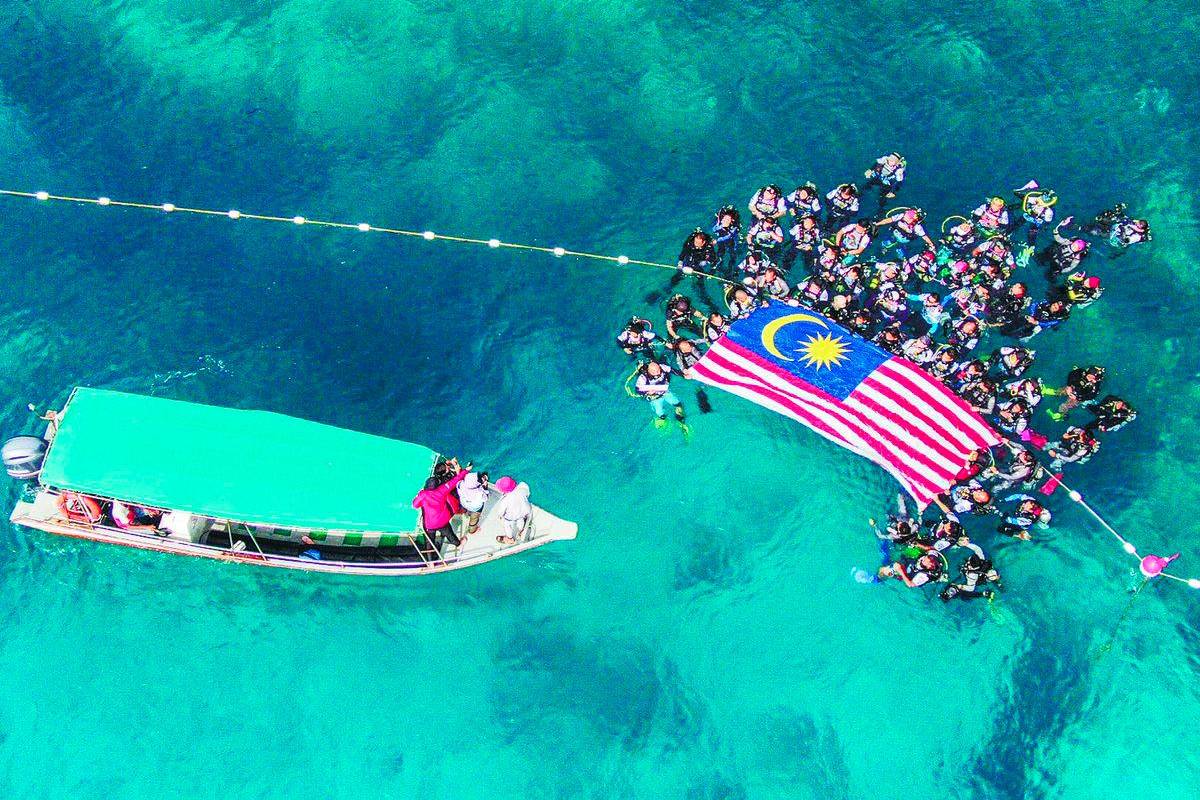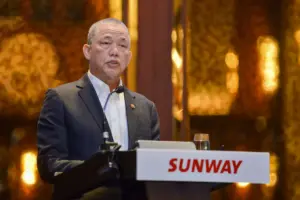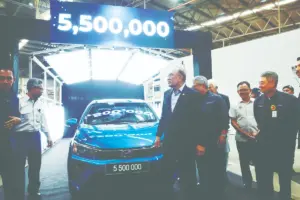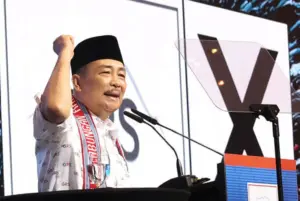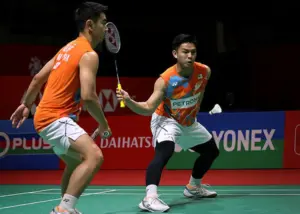ALL religions have symbols to depict their faith. In Buddhism, it is the wheel,
symbolising eternity. It reminds us to focus on the present moment as each passing moment is lifted into eternity by the flow of time.
By focusing fully on the present moment, we can rise above the constraints of time and experience a sense of unity with the divine. The goal is to live fully in the present.
In Hinduism, aum – pronounced om – represents past, present and future woven together as one. It is a sacred symbol of the Creator. Through deep, continuous recitation, om brings us into a state of inner peace – the peace of living in the divine, with the divine and through the divine.
Each faith contributes to a deeper understanding, like the segments of a bamboo, fostering a sense of connection among all religions.
In Christianity, the cross symbolises the sacrifice Jesus made. While praying in the Garden of Gethsemane with his closest disciples, Roman soldiers came to arrest him. The disciple Peter drew his sword to fight, hoping to give Jesus time to escape. But Jesus told Peter to put away his sword, choosing to face death himself rather than have his disciples die fighting on his behalf.
This is a supreme example of servant leadership, of truly caring for the people you serve when the going gets rough.
These are lessons politicians can learn from. They are elected to serve and not be enriched. However, this is what politics has degenerated into and this can pull down any nation, especially in a time of global climate change.
In practice, many politicians build their own support networks, much like leaders of small units within a larger structure. Each maintains a loyal base, and political parties often operate as a web of these individual factions.
As a result, benefits and favours tend to be directed towards loyal supporters rather than being distributed evenly to serve the broader public, regardless of political alignment.
Over time, this creates a system where political allegiance shapes how resources are allocated, often at the expense of addressing the actual needs of the population.
Teamwork and cooperation are often externally motivated by the pressures of elections, where politicians must unite to outperform their rivals.
However, this cooperation is not always genuine; it is typically driven by a shared desire to win rather than a common vision or purpose. In such a win-lose dynamic, gains are offset by losses, and in the end, there may be little of real value left to show for it.
The national framework is like a jigsaw puzzle – only when all the pieces are joined can unity and progress emerge. But in a win-lose political contest, there is no real unity and no coming together. This is the bitter outcome when democratic elections are distorted from their original purpose.
When democracy is misused, it becomes like eating durian while running a fever – driven more by craving than by necessity. It turns toxic. But can we remove the poison from the process? Yes, we can.
We must begin by expecting all candidates to act as they would in a
trade union election, where there are no entrenched factions, only a shared commitment to a common cause.
In such a setting, whoever wins brings the others on board, forming a committee that works together for the good of all. This is what democratic politics should look like: a system where everyone benefits.
Win or lose, the fact that you have been nominated shows you have something to offer. That talent should be used in service, not held back because you did not come out on top.
Public service should never be conditional on personal victory. This is self-aggrandisement and it sets you at odds with the very faith you claim to uphold. You stray from the true path while insisting you are defending it.
But God does not need defending; He is the Creator of all. Since when does a creator rely on what He has created?
If you were a toymaker, would you depend on your toys? Is that truly your faith in God?
Faith is misused when it leads you to believe that your religion requires you
to support only candidates who share it. That thinking denies the possibility of connection across faiths; it rejects the idea of a spiritual network that binds
us all.
Yet, anyone who studies the natural world knows that all life is interconnected, just like the intricate relationships in a forest ecosystem. So why should human communities be any different?
Joachim Ng champions interfaith harmony.
Comments: [email protected]
